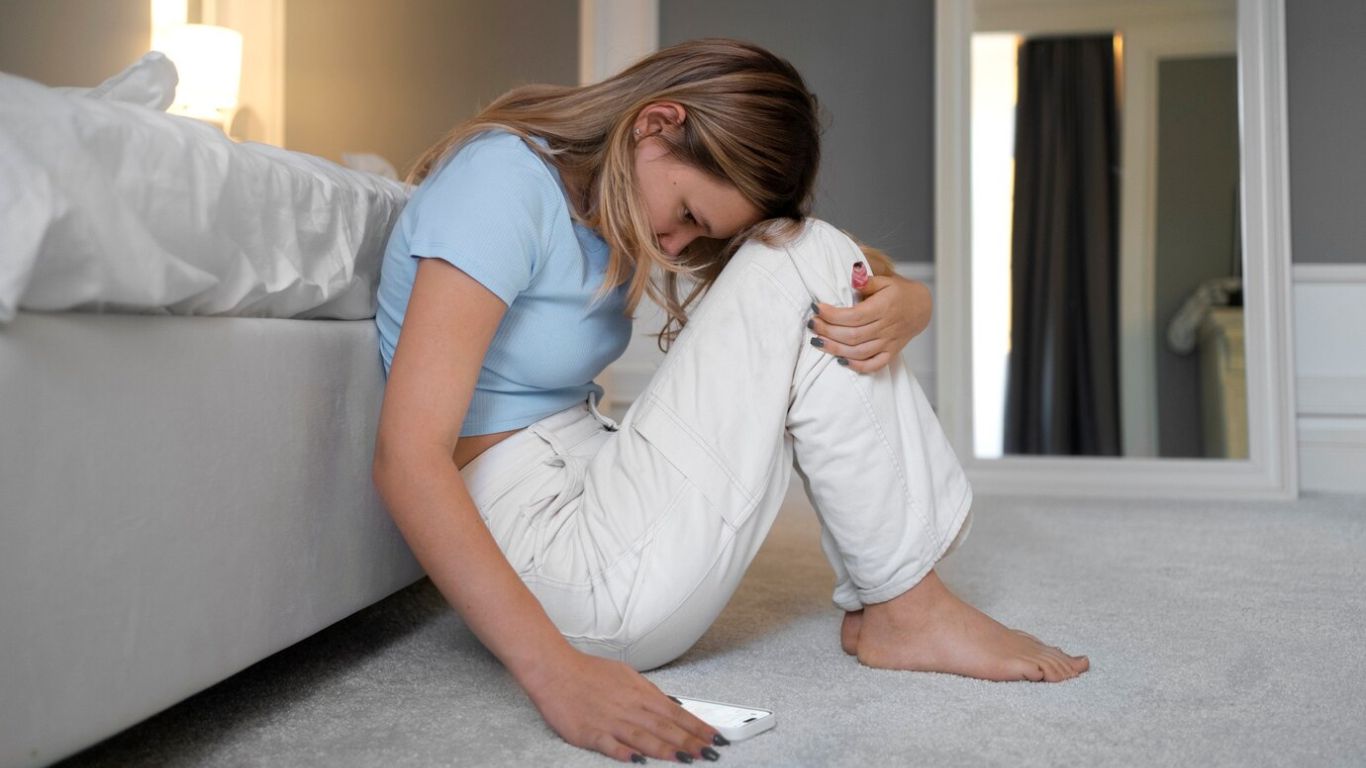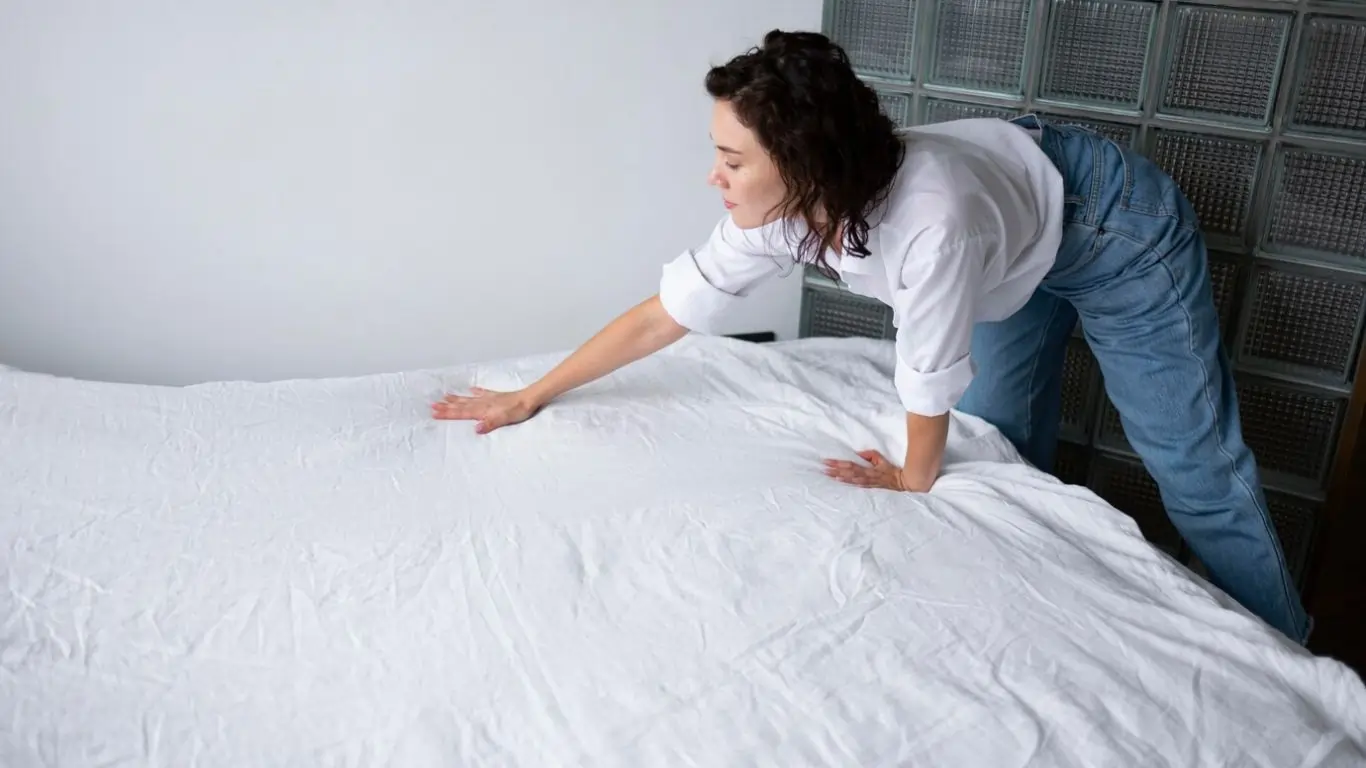A well-made bed is often seen as a sanctuary. It’s where we retreat after a long day, seeking rest and rejuvenation. But when that sanctuary is invaded by bed bugs, it can turn our world upside down. Beyond the physical irritation they cause, bed bugs often usher in a less spoken of but equally distressing issue: anxiety. This article explores the psychological impact of a bed bug infestation and offers coping strategies.
Understanding Bed Bug Anxiety
Bed bug infestations can lead to heightened feelings of vulnerability. They attack in the dark, in the place you’re supposed to feel safest. This breach of personal space can lead to symptoms such as insomnia, excessive worry, and even post-traumatic stress in some cases.

Why Bed Bugs Cause Anxiety
1. Invasion of Personal Space:
Our beds are intimate spaces. The thought of tiny pests crawling and feeding on us in our sleep can be deeply unsettling.
2. Persistent Threat:
Even after treatment, the fear of re-infestation lingers, making it hard to feel entirely at ease.
3. Stigma:
Despite bed bugs being a widespread issue, there’s societal shame linked to infestations, making individuals feel isolated.
4. Disrupted Sleep Patterns:
Fear of being bitten can lead to insomnia or restless sleep.

Strategies to Cope with Bed Bug Anxiety
1. Educate Yourself
Understanding the enemy can reduce fear. Bed bugs, while pesky, aren’t known to transmit diseases. Recognize them as a nuisance rather than a health threat.
2. Seek Professional Extermination
One of the best ways to assuage your fears is to tackle the problem head-on. Hire a professional extermination service. Their expertise will ensure a thorough job, and their confidence can be a balm to your anxieties.
3. Maintain Vigilance, Not Obsession
Post-treatment, be vigilant. Regularly inspect your bed and surrounding areas, use bed bug protectors, and avoid bringing second-hand furniture home without thorough inspection. However, be careful not to let this vigilance turn into an obsession.
4. Establish a Bedtime Routine
A routine can serve as a grounding mechanism. Engage in calming activities like reading, meditation, or gentle stretching before bed to signal the brain that it’s safe to relax.
5. Consider Temporary Relocation
If anxiety is overwhelming, consider sleeping in a different room or even staying with a friend or family member temporarily. A short break can provide mental relief.
6. Connect with Others
Sharing your feelings and experiences with others can be cathartic. Consider joining online forums or support groups where individuals share their bed bug experiences. Knowing you’re not alone can be reassuring.
7. Professional Therapy
If your anxiety doesn’t diminish or begins affecting daily functioning, consider seeking therapy. Cognitive-behavioral therapy, in particular, can provide coping mechanisms.
8. Avoid Blame
It’s essential to remember that cleanliness isn’t necessarily a deterrent for bed bugs. They’re hitchhikers and can be picked up anywhere. Avoid self-blame or shame.
9. Re-establish Safety
Once the infestation is handled, take steps to reclaim your space. Wash bedding in hot water, vacuum regularly, and declutter. Physically cleaning can also provide a sense of mental cleansing.
10. Practice Mindfulness and Relaxation
Engage in mindfulness exercises to stay grounded. Deep breathing, meditation, and progressive muscle relaxation can reduce anxiety symptoms.
Resisting Stigma and Embracing Support
Bed bugs have existed alongside humans for millennia. They’re not a reflection of cleanliness or character. If faced with insensitive comments or feelings of shame:
- Educate the Ignorant: Politely share facts about bed bugs to dispel myths.
- Seek Support: Lean on understanding friends or family, or connect with others who’ve faced infestations.
- Know Your Worth: Your value isn’t determined by external circumstances. Remember your strengths and positive qualities.
Conclusion
Bed bug infestations are, without a doubt, distressing. However, they’re also treatable. While the physical aspect of an infestation can be handled with professional help, the psychological scars might need a more personal touch. Recognizing and addressing the anxiety that comes with such an invasion is a crucial step in the healing process. With time, patience, and the right coping strategies, bed bug anxiety can be overcome, allowing you to reclaim not just your bed, but also your peace of mind.
Frequently Ask Questions
Bed bugs invade our personal space, leading to feelings of vulnerability. Their persistence and the stigma associated with infestations can also heighten anxiety. Moreover, disrupted sleep patterns due to fear of being bitten exacerbate feelings of stress.
No, bed bugs are not a sign of dirtiness or neglect. They are hitchhikers and can be picked up anywhere, from public transport to high-end hotels. They are attracted to carbon dioxide and warmth, not dirt.
Hiring a professional extermination service is the most effective way to deal with an infestation. Regular inspections post-treatment and using protective measures, like bed bug protectors, can also instill confidence.
While vigilance is essential, obsessing can be harmful. Establish a routine inspection, use preventive measures, and educate yourself on bed bugs to reduce undue fear.
Yes, if anxiety affects your daily life, therapy, especially cognitive-behavioral therapy, can provide coping mechanisms and strategies to deal with trauma.
Regular cleaning routines, decluttering, and physically reclaiming your space can help. Engage in activities that ground you and help you relax, especially before bedtime.
Mindfulness exercises help individuals stay present and grounded. Techniques such as deep breathing, meditation, and progressive muscle relaxation can help manage anxiety symptoms and offer a sense of calm.
Remember, while bed bug infestations are undeniably distressing, they’re treatable, and the anxiety they bring is manageable. Seeking support, staying informed, and adopting coping strategies can help navigate this challenging period.
